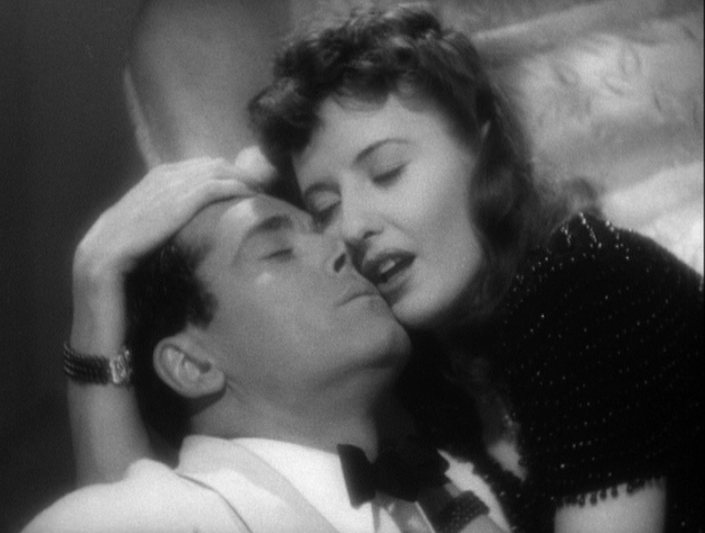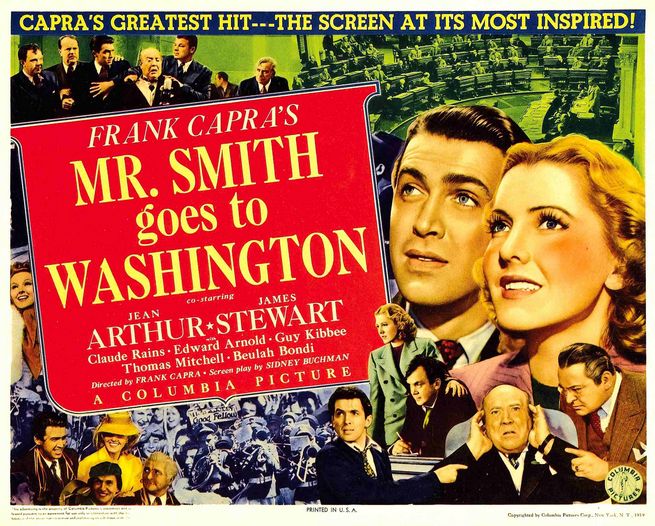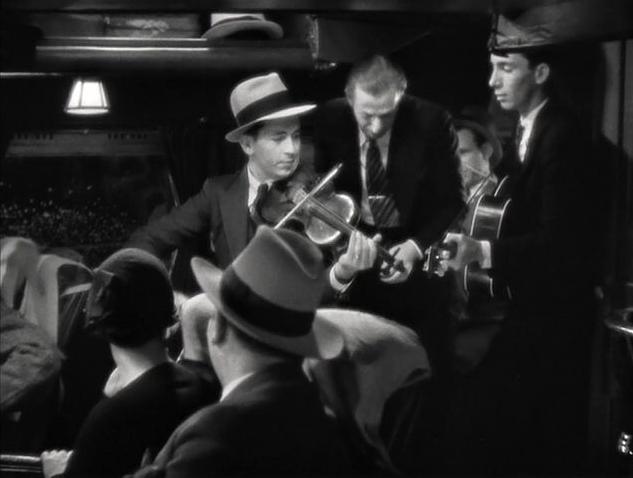 Andreas from Pussy Goes Grrr here, to talk about an impromptu musical number that doubles as a historical document. Frank Capra’s Oscar-sweeping screwball comedy It Happened One Night is naturally best remembered for the cute love story that unfolds (over the course of several nights) between stars Clark Gable and Claudette Colbert.
Andreas from Pussy Goes Grrr here, to talk about an impromptu musical number that doubles as a historical document. Frank Capra’s Oscar-sweeping screwball comedy It Happened One Night is naturally best remembered for the cute love story that unfolds (over the course of several nights) between stars Clark Gable and Claudette Colbert.
However, it’s also something of a postapocalyptic travelogue, since the odd couple’s odyssey by bus up the East Coast gives them a panoramic view of a nation debilitated by the Depression. They run into purse snatchers, con men, starving children, and crowds of poor families forced together by poverty. For Colbert’s spoiled heiress, it’s a shocking glimpse of how the other half lives. But the world she discovers is not all negative: the bus’s passengers comprise a makeshift community, and it’s one that loves to sing.
So while the bus chugs along, a band suddenly forms in the back—complete with fiddle, guitar, and vocalist—and, apropos nothing, starts playing the decades-old standard “The Daring Young Man on the Flying Trapeze.” Soon the whole bus joins in on the chorus, and individual passengers stand up to sing the verses alone. Out of nowhere, a form of communal vaudeville springs up, a show-within-a-show that Gable and Colbert watch with delight.
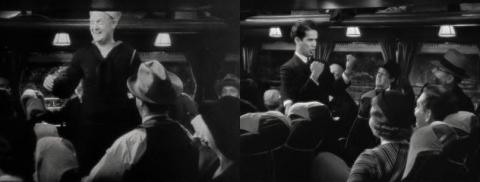
Everyone gets a chance to shine, including a mincing sailor who gives a lurid emphasis to the line “His eyes would undress every girl in the house!” (It’s a surprisingly bawdy song for such a public performance, but no one seems to notice or care.) The film’s main plot continues during the song courtesy of clever editing, as close-ups on the sleazy Shapely and the distracted bus driver appear alongside wide shots of all the other passengers with the band as their focal point. But this is decidedly a detour, albeit a spectacular one, from the fugitive couple’s episodic progress; it’s a sequence more about setting and the nature of Depression-era bus travel than about plot.
This spell of utter mirth ends, of course, with a minor tragedy, as the bus careens into a muddy ditch. Soon thereafter, Gable and Colbert lose the rest of their money and have to leave the bus for good due to Shapely’s half-baked scheming. But that spur-of-the-moment musical number is still a chance for bonding, as the sheer cuteness of the passengers’ singing cuts through the main characters’ lingering cynicism and world-weariness. (Gable even gets in on the act, passing a flask around to some dancing fellow travelers.)
Maybe it’s an American instinct to respond to times of crisis by putting on a show. Or maybe this is just a manifestation of the cliché that poor people are happier and have an easier time cutting loose—the same one witnessed in Titanic when Rose goes below decks to dance a polka away from her stultifying society friends. (Or in My Man Godfrey, or Holiday, or any number of other Depression-era comedies.) Cliché or not, though, the scene in It Happened One Night feels so alive and strangely naturalistic despite its improbability, because the sailor and all the other participants bring such enthusiasm to their performances. For these few minutes, money and class are meaningless: all that matters is the music.
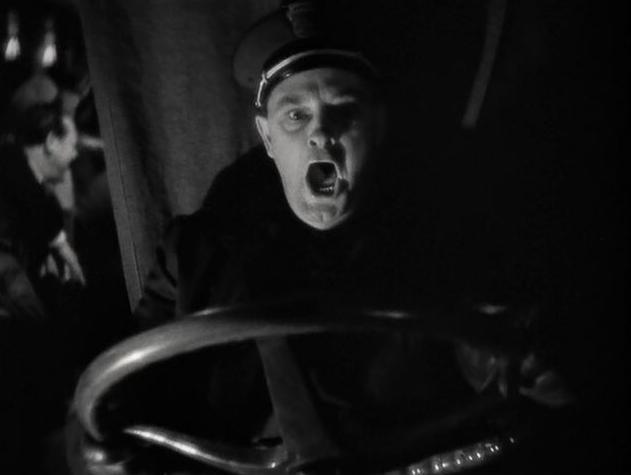
(Trivia time: the guitarist in this scene is Ken Carson, who would later join the band Sons of the Pioneers. With them, he helped record the theme song for The Searchers and the song “Tumbling Tumbleweeds,” later used in the opening of The Big Lebowski.)
 Wednesday, May 28, 2014 at 11:50AM
Wednesday, May 28, 2014 at 11:50AM 